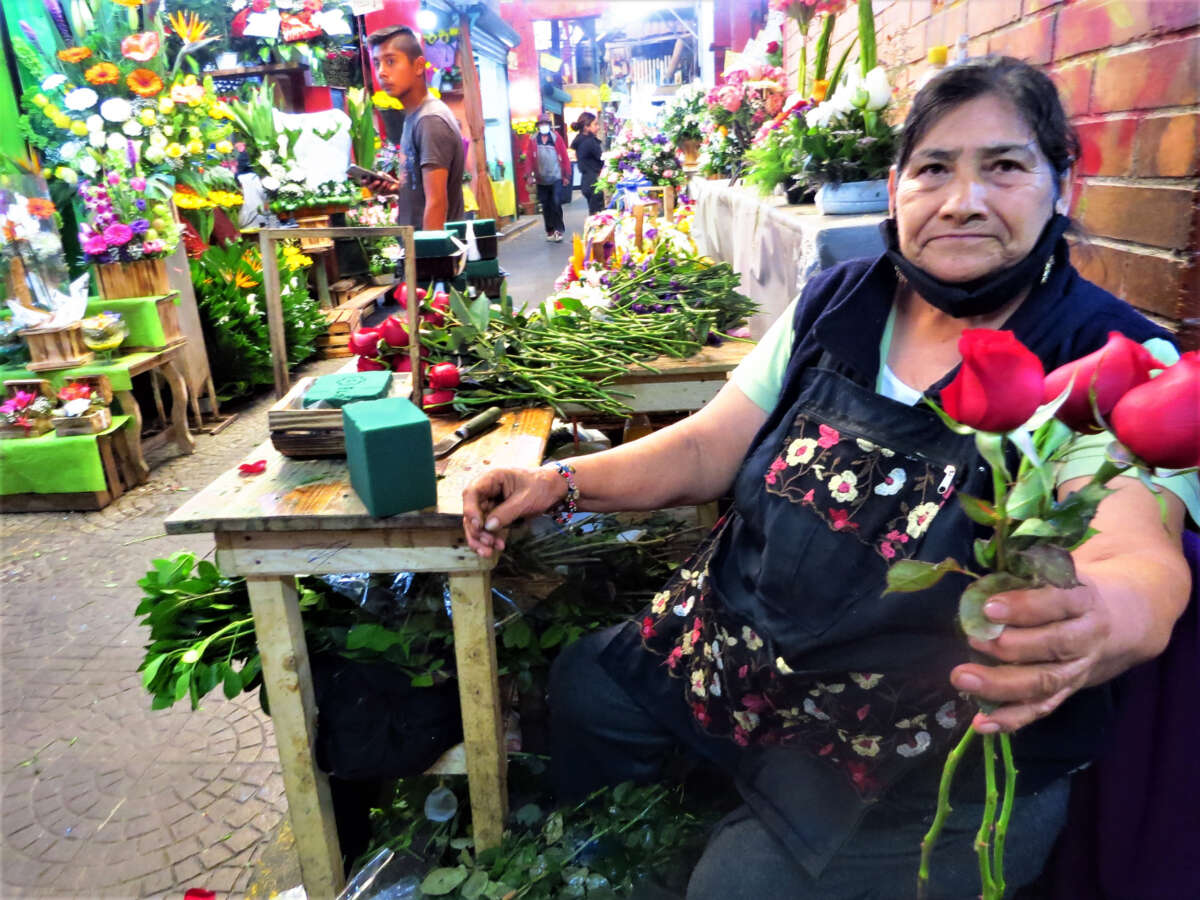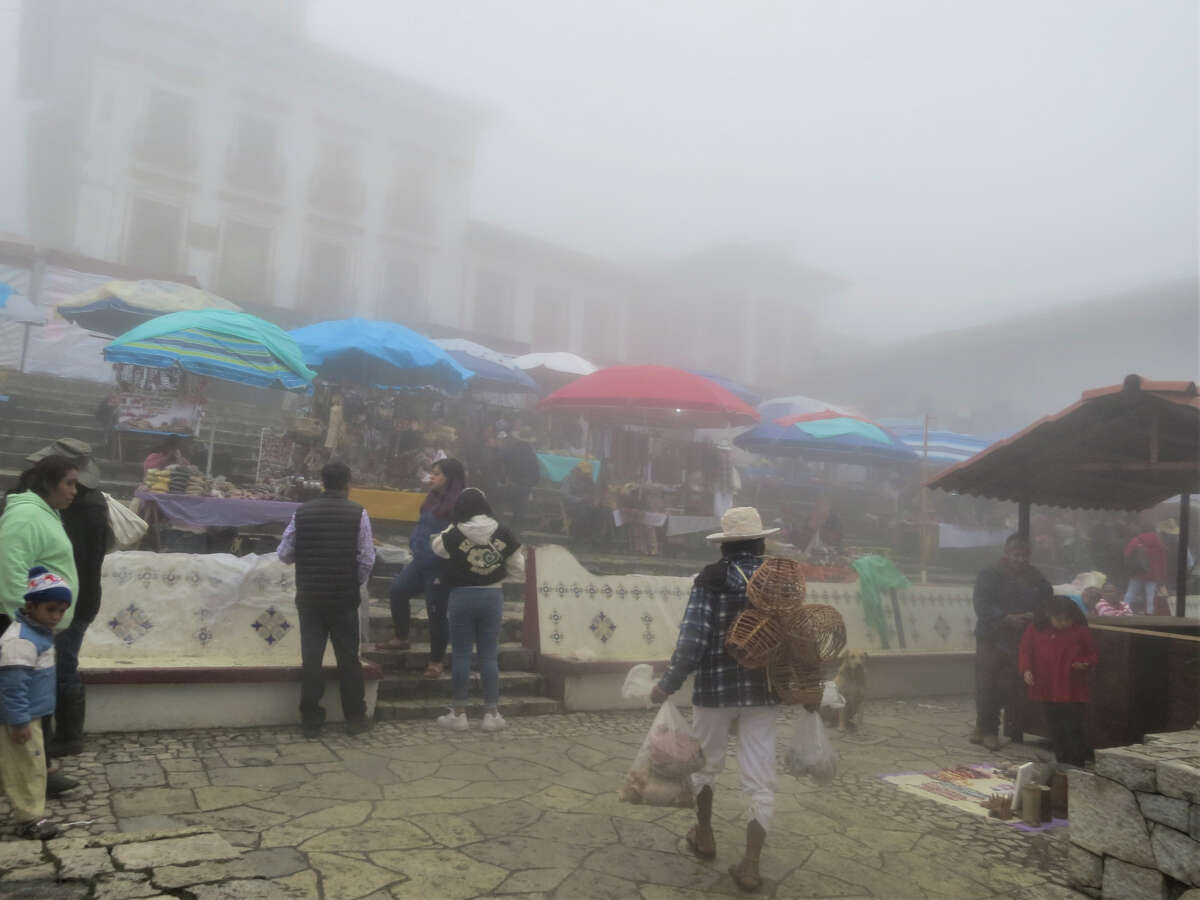Truthout is an indispensable resource for activists, movement leaders and workers everywhere. Please make this work possible with a quick donation.
“You don’t think about the future.… There’s no future to think about. Future is arriving home to sleep,” Nemir said. “It’s stressful. Sometimes you feel like you won’t get anywhere. You can’t plan anything. You feel defeated.”
Nemir (who requested his last name not be used due to fear of reprisal), worked for years delivering food via apps like Rappi, and now cleans and delivers 20-liter bottles of water. He is part of the majority of workers (at least 60 percent) in Mexico who have informal jobs. That typically means seven-day work weeks and no rights like social security or retirement.
Mexico, the country with the longest average working hours in the world, passed a labor reform early last month extending annual paid vacation from 6 to 12 days. However, most workers won’t benefit from the change, because they don’t have contracts.
The International Labour Organization estimates that worldwide, about 2 billion people are informal workers, and 93 percent of those are in the Global South. In Mexico, sales, agriculture and manufacturing are the sectors with the largest numbers of informal workers. Some 85.4 percent of clothing businesses are informal. The consequences of this are far reaching because poverty isn’t just expressed through a low daily income, but through the precariousness and vulnerability of not having a guaranteed income. Informal work is unsafe, as workers are unable to defend themselves from abuse and their workplaces are often undefined or small and hazardous.
Alberto Salcedo (whose name has also been changed due to fear of reprisal) earns 7.5 pesos ($0.38) per Amazon package delivered. He is a freelance journalist who organizes with other journalists through Frontline Freelance Mexico, a network aimed at protecting freelancers’ rights and safety. The network is an outgrowth of the international organization Frontline Freelance Register, which was created in response to violence against freelance journalists in various war zones. But Salcedo doesn’t earn enough from journalism or from his postgraduate scholarship, so he also has to deliver for an Amazon subcontractor. On an exceptionally good day, like the recent shopping discount weekend, he delivered 70 packets, earning $26.60.
“I don’t get enough rest. I often pull all-nighters, and I rarely have a day off. I’m stressed all the time. I’m 30 years old, but even studying a postgraduate doesn’t guarantee me anything,” Salcedo told Truthout. “In the end, Amazon can change its rules, and suddenly that source of income is gone. The only relationship I have with them is I write a receipt and they give me a deposit. Nothing is certain or stable, I don’t feel like I have any security.”
When Nemir was delivering food, he worked seven days a week, from 8 am to 10 pm. Now, delivering water, he gets one day off, but earns less.
“You don’t have set hours; you don’t have a time you start and finish. You live day to day based on what you manage to earn each day,” he said.
With Rappi, he was paid an average of 30 pesos ($1.52) per delivery, but petrol came out of that. “Rappi was setting working hours and areas, so you couldn’t choose when you worked. They say they aren’t your bosses, but they actually are,” he said.
Food deliverers in Mexico earn a median of 40 pesos ($2.02) an hour, and work an average of 46 hours a week. A survey conducted late last year found that people who delivered via apps paid a higher percentage of their income (8 percent) in taxes than the biggest companies in Mexico (with manufacturing and pharmaceutical companies paying 1.2 to 5 percent). But while the deliverers pay taxes, they don’t get social security, and the companies don’t comply with the legal requirement to provide them with the equipment they need to work, nor accident insurance.
The most common informal job is selling goods or food from street stalls, in markets, or on buses and trains. And while these markets are essential for the poorer classes because they provide basic foods and meals at much cheaper prices than Walmart and shopping centers, they regularly face repression from local governments who want to remove them in order to cater to the upper classes and to tourists from wealthy countries.
The Hidalgo Market is the biggest such market in Puebla state, and it is self-run by the Popular Union of Mobile Vendors (UPVA) 28 De Octubre organization. Uniting 3,800 stall vendors who come from various rural, Indigenous communities and nearby towns, the union protects workers from police stealing their products or shutting their stalls down, and customers from common practices like under-weighing produce.
“People live from day to day. They work in the market as a last option in order to survive. The fruit vegetable sellers buy their goods at 4 am in order to start selling at 7 am,” Rita Amador told Truthout. She used to sell cemitas (a Puebla sandwich) in the market, and is now one of the main leaders of 28 De Octubre. She has received numerous threats of violence or death, and her husband, also a leader, has been imprisoned twice. His daughter, Meztli Sarabia, was murdered in 2017.
But unlike many groups which end up selling over to economic elites or politicians, 28 De Octubre refuses to budge. The group’s 150 councilors are elected every six months, and they hold cultural workshops, bring in doctors and psychologists, and have committees for handling disputes.
Produce vendors usually work until 8 pm, seven days a week, Amador explains, while flower sellers work all night. “Basically, they work, arrive home to sleep, then go to work again,” she says.

Mental and Physical Health Consequences of Informal Work
Because informal workers are more exposed to risks and shocks than formal workers — including policy that is biased against them, shifts in demand, prices and inflation, and occupational health risks — they are more likely to develop physical and mental health problems. In a study on workers in Latin America, it was found that informal workers have a 27 percent higher prevalence of depressive symptoms, and studies have found that only strong welfare states with services available to everyone can soften the physical health inequality between the two work forces.
“Lots of Uber drivers have told me that they were kicked off the platform just because of one complaint … nothing is safe or certain. You start the day not knowing if you’ll get deliveries. It wears you down physically and mentally. I’ve had chronic colitis, and of course anxiety every day,” Nemir told Truthout.
Mexico’s broken public health system is only available to formal workers, so informal work affects the person’s dependents as well. “If you need to get a tooth fixed, you put it off continuously … you have to keep on going at the expense of your health. And when I do save some money, I spend it on my kids. My wife needs to see an endocrinologist, but the test is 1,000 pesos, [and] we don’t have the funds. So, you gamble on your health, on your life,” said Nemir.
Salcedo, meanwhile, said he is thinking of emigrating from Mexico to “work in anything. To continue here, with this uncertainty, is only affecting my health, my quality of life. You can’t stand up for your rights when you don’t even have guaranteed pay.”

Profitability and Global Inequality in Informal Work
The high levels of informal employment in Mexico are an unstated but deliberate policy aimed at increasing profits for local and U.S. businesses. The North American Free Trade Agreement (NAFTA), and other neoliberal policies prompted huge migrations from rural areas to the cities in the 1990s, as the U.S. sent its subsidized corn to Mexico and local small businesses were ruined. With little work available in the cities, people had to sell goods in the streets in order to survive.
Mexico’s minimum wage decreased from 1980 through 2000, as the country was pressured to remain “competitive” for “investment” from U.S. companies — that is, to keep wages as low as possible so that transnationals could use Mexico to increase their profits. Adjusting for purchasing power and inflation, in 1979, the minimum daily wage was 330 pesos ($16.89), while in 2000 it was 90 pesos ($4.61). This imposed poverty caused the amount of informal work to increase.
“The (Mexican) government hasn’t looked after people’s well-being. They welcome foreign companies that don’t pay well and that violate workers’ rights. Their only interest is in guaranteeing cheap labor for the multinational companies that come here. But people have to look after themselves, and their only option is informal work,” said Amador.
“The government serves imperialism, giving companies everything and we’re not considered,” she concluded.
Many industries in Mexico and the Global South depend on informal work. The apparel industry uses home-based garment workers paid by piece in order to offload the monetary risk of fluctuating demand on to them, as well as the non-wage costs of production like machinery and electricity.
Likewise, Uber’s profits depend on avoiding paying formal work benefits. If the two founders of Uber, Garrett Camp and Travis Kalanick, paid 3.5 percent of their wealth to social security in Mexico, the country’s 350,000 food deliverers would have access to it for five years.
The Global South has been used as the plundering grounds for wealthy countries’ corporations for centuries. A recent study calculates that richer countries, through unequal trade, have drained the equivalent of $152 trillion from the Global South since 1960.
When governments of countries in the Global South have sought to resist this dynamic by increasing wages and combating poverty, Western powers have all too often removed them from power, as happened in Indonesia in 1965, Congo in 1960, Chile in 1973 and Honduras in 2009, to name a few.
As a result, richer countries continue to exploit cheap labor and resources, and take advantage of lower environmental standards (set at the pressure of wealthy countries) while paying little to no taxes, leaving poor countries’ governments with few resources to pay for public sector jobs.
A terrifying moment. We appeal for your support.
In the last weeks, we have witnessed an authoritarian assault on communities in Minnesota and across the nation.
The need for truthful, grassroots reporting is urgent at this cataclysmic historical moment. Yet, Trump-aligned billionaires and other allies have taken over many legacy media outlets — the culmination of a decades-long campaign to place control of the narrative into the hands of the political right.
We refuse to let Trump’s blatant propaganda machine go unchecked. Untethered to corporate ownership or advertisers, Truthout remains fearless in our reporting and our determination to use journalism as a tool for justice.
But we need your help just to fund our basic expenses. Over 80 percent of Truthout’s funding comes from small individual donations from our community of readers, and over a third of our total budget is supported by recurring monthly donors.
Truthout has launched a fundraiser to add 500 new monthly donors in the next 10 days. Whether you can make a small monthly donation or a larger one-time gift, Truthout only works with your support.
